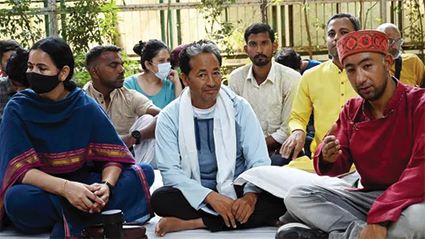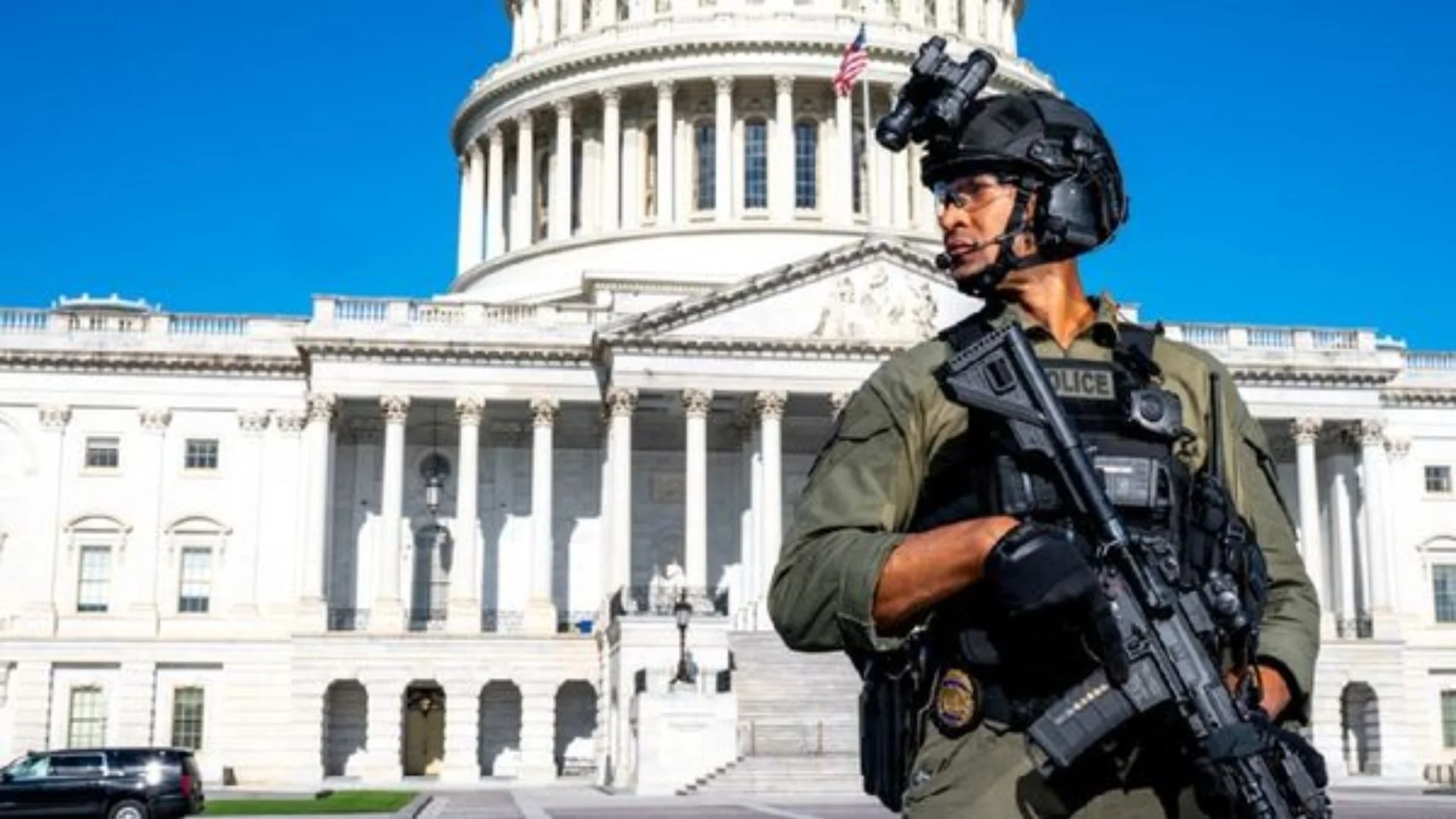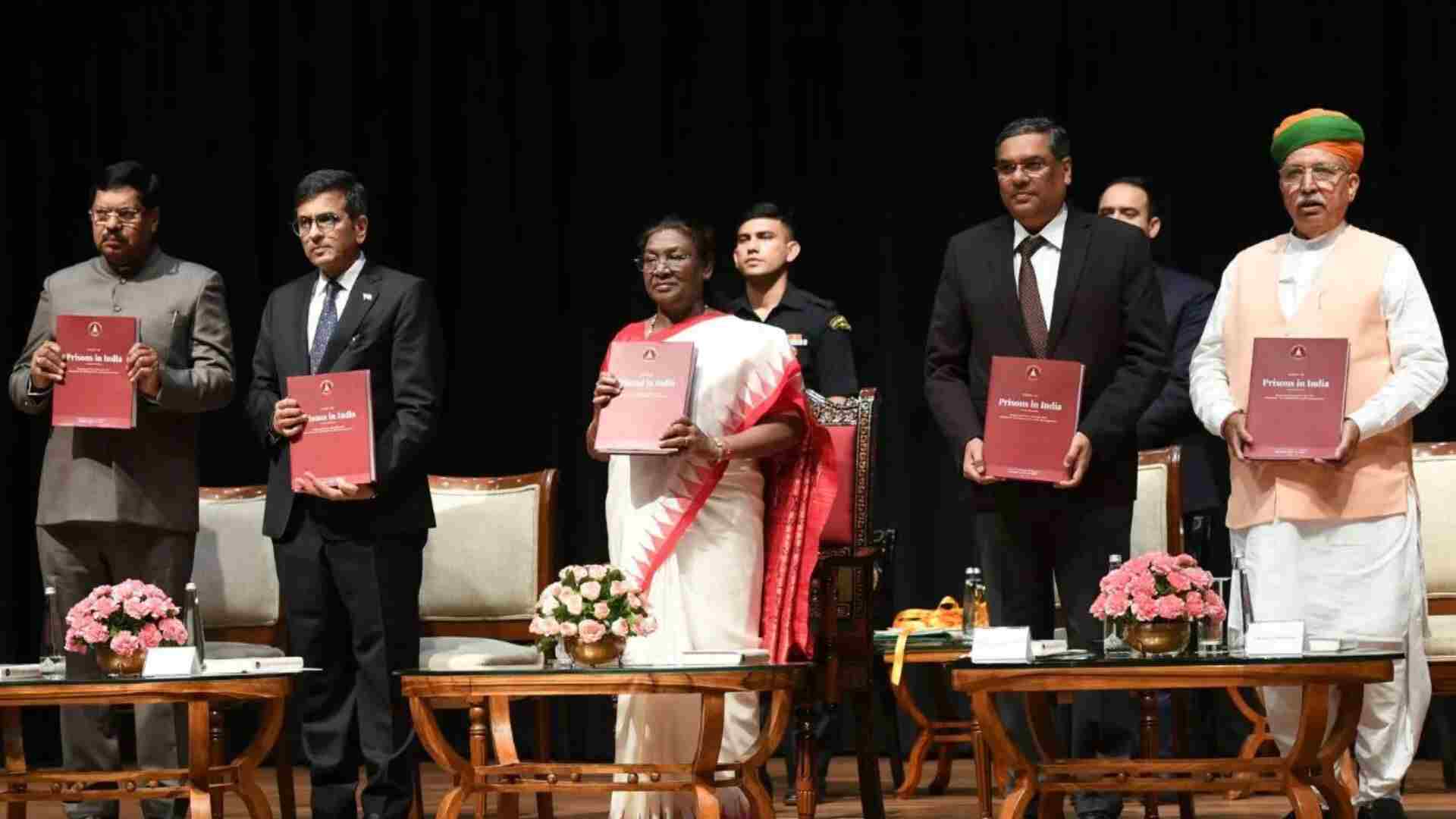
In a tense standoff outside Ladakh Bhawan, several protesters were detained by Delhi Police on Sunday while climate activist Sonam Wangchuk continued his indefinite hunger strike, which began on October 6. The protesters are demanding the inclusion of Ladakh in the Sixth Schedule of the Constitution to protect the region’s unique tribal identity.
Confusion initially arose after reports suggested that Wangchuk himself had been detained. However, Deputy Commissioner of Police (New Delhi) Devesh Mahla later clarified that the renowned activist was not among those detained. “We have detained some students from outside the Ladakh Bhawan. Sonam Wangchuk is not among them,” Mahla stated, emphasizing that those detained had been taken to the Mandir Marg police station.
In a video message, Wangchuk criticized the authorities for detaining peaceful demonstrators, questioning why Section 163 of the Bharatiya Nagarik Suraksha Sanhita (BNSS), which prohibits unauthorized gatherings, remains in permanent effect in New Delhi.
“It is really sad that in the world’s largest democracy, we can’t even hold a silent protest,” Wangchuk said. He called the imposition of Section 163 a “blot on democracy” and urged the courts to take cognizance of the situation.
According to a senior police officer, the protesters had not obtained the necessary permission to demonstrate outside Ladakh Bhawan. “They have filed an application to hold the protest at Jantar Mantar, and it is under consideration. They are not allowed to protest at any other site,” the officer said, adding that those detained would be released soon.
Wangchuk and his supporters, who had marched to Delhi from Leh, were earlier detained at the Singhu border on September 30 but were released on October 2. The activist’s hunger strike is part of a broader movement led by the Leh Apex Body and the Kargil Democratic Alliance, which has been agitating for the past four years. Their demands include statehood for Ladakh, inclusion in the Sixth Schedule, a public service commission for the region, and separate Lok Sabha seats for Leh and Kargil districts.
The Sixth Schedule of the Constitution currently provides autonomous councils with legislative, judicial, and financial powers for tribal areas in Assam, Meghalaya, Tripura, and Mizoram. Wangchuk and his supporters argue that similar provisions are essential for safeguarding Ladakh’s distinct tribal heritage and political future.
They continue to seek a meeting with Prime Minister Narendra Modi to press their demands.















